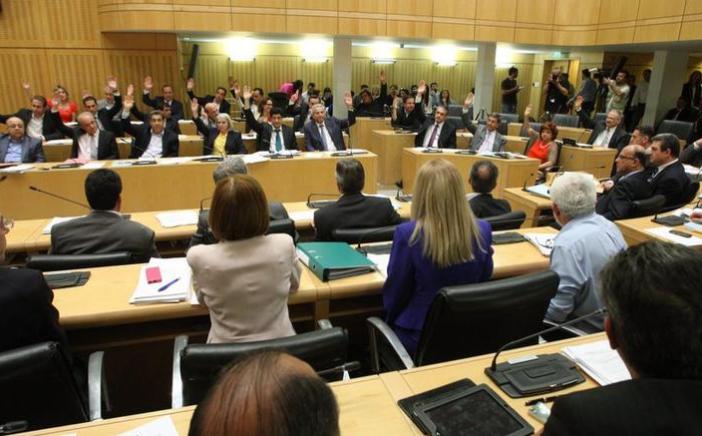 Following an intervention of attorney General Costas Clerides and Central Bank of Cyprus governor Chrystalla Georghadji, the parliament’s watchdog committee postponed a debate scheduled for today on how the Famagusta-Larnaca Cooperative Bank accepted a €33m deposit from funds which were in possession of the late Kazakh former official Rakhat Aliyev, lawmakers said.
Following an intervention of attorney General Costas Clerides and Central Bank of Cyprus governor Chrystalla Georghadji, the parliament’s watchdog committee postponed a debate scheduled for today on how the Famagusta-Larnaca Cooperative Bank accepted a €33m deposit from funds which were in possession of the late Kazakh former official Rakhat Aliyev, lawmakers said.
Authorities have frozen the funds in accordance with official procedures, and Attorney General Costas Clerides requested to postpone the debate as it would affect investigations, the Cyprus News Agency reported on Thursday citing the chairman of the committee, Diko lawmaker Zacharias Koulias.
Koulias added that it is the parliament’s “standard practice to cooperate on sensitive issues” and thus, the majority of the members of the committee decided to vote in favour of cancelling the debate.
This angered Disy lawmakers and leader of the Green party George Perdikis, who opposed the decision.
Dannita-demetriouisy lawmaker Annita Demetriou said that there are questions about how the anti-money laundering legislation is implemented and the position of “certain circles” which are against a debate of the issue raises more questions, the Cyprus News Agency reported.
“It’s a very serious issue” and “we are looking for convincing answers,” she said, adding that Hellenic Bank initially rejected to accept the funds as deposits. She added that it is important for Cyprus’s financial system to avoid getting entangled in scandals.
Akel deputy Irini Charlambidou said that not heeding the requests from the attorney general’s office and the central bank would put ongoing investigations at risk.
The Greens’ lawmaker Perdikis said that when a cooperative bank appears to have engaged in suspicious dealings, one cannot expect the parliament not to look into the matter because the central bank and the attorney general fear it could affect investigations, the Cyprus News Agency reported.
Cyprus’s cooperative banks, administered by the Cooperative Central Bank, are 99-per-cent owned by the government, which injected almost €1.7bn in taxpayers’ money since 2014.
Rakhat Aliyev divorced the eldest daughter Dariga of Kazakhstan’s ruler Nursultan Nazarbayev in 2007 and married his assistant Shorazova the same year. He was found dead in a prison cell in Austria in 2015, while awaiting trial on charges of murder and kidnapping. Aliyev had held several state posts in Kazakhstan before his divorce and amassed a huge fortune with questionable methods.
A group of Kazakh dissidents also claim the assets which they assert are product of Aliyev’s criminal activity while he was part of Nazarbayev’s regime following the collapse of the Soviet Union.
Serik Medetbekov, one of the group’s members and also director of the foreign office of the Kazakh opposition, said that in the late 1990s, he had been pressured at gunpoint to pass Aliyev his television and radio channel RIK “without indemnity”.
Transparency International ranks Kazakhstan as the world’s 44th most corrupt state out of a total of 167 countries.
Amnesty International, a human rights watchdog says that torture in the former Soviet republic is common practice, while freedom of expression is restricted with journalists facing harassment and intimidation.
Cyprus Business Mail, 1.12.2016




